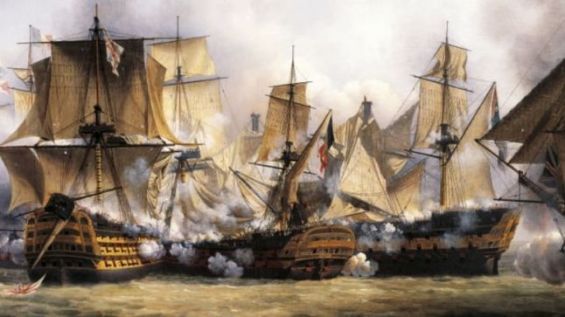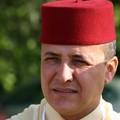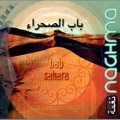In 1805, and ahead of his last battle, British flag officer in the Royal Navy Admiral Nelson sought the help of the Emperor of Morocco.
Preparing his fleet for the Battle of Trafalgar, a naval engagement between the British Royal Navy and the combined fleets of the French and Spanish navies during the Napoleonic Wars, Lord Nelson reached out to the British Consul General in Tangier, J.M. Matrix.
Letters sent from His Majesty’s Ship (HMS) Victory, a 104-gun first-rate ship of the line of the Royal Navy and Lord Nelson’s flagship, urged the British ambassador to «use all [his] influence and exertion that the Fleet may receive in every [Moroccan] ports» assistance.
1/5: How much do you know about Nelson’s chest? Watch this video ? by Ambassador @UKSimonMartin to learn more about it!#300YearsTreaty #UKMorocco #HistoryMonth pic.twitter.com/cB51t3Pbtv
— UK in Morocco (@UKinMorocco) February 28, 2021
Lord Nelson exerted the consul in his letters, sent ahead of said battle which took place in October 1805, to make sure that the British fleet receive in Moroccan ports «bullocks, sheep, poultry and every refreshment» they needed.
Lord Nelson’s exertions were meant to be directed to the Emperor of Morocco himself, Moulay Slimane. In addition to receiving supplies, Lord Nelson urged the consul to «have the orders of the Emperor for embarkations being allowed in Arache (Larache), Sallee, Mogador and any other ports which he may have upon his coast».
The letters, preserved by the British residence in Rabat, reveal that Lord Nelson’s letters made mention of presents he planned to send to the governors of Tangier and Tetouan as courtesy.
3/5 pic.twitter.com/gdc0lqVweI
— UK in Morocco (@UKinMorocco) February 28, 2021
He even asked the consul to advise him which presents would be appreciated by the two Moroccan officials. «As a little present from myself may be acceptable to the Governors, I should be glad to know from you what articles would be most desirable, in case I should want to send to those places», the Admiral wrote.
«It is our interest to be on the best possible terms not only with the Emperor but also with the Governors of Tangier and Tetuan (…) and I will endeavor to get them and send them (presents) with a proper letter and be as good as mention their names and titles», Lord Nelson promised.
Lord Nelson's chest
Indeed, Lord Nelson shouldered his promises, sending a few days before the battle a strongbox. The latter is believed to have contained presents to the governors of Tangier and Tetuan as mentioned din his letter to the British consul.
Today, Nelson’s chest is preserved at the British residence in Rabat. The box was sent as «tokens of Lord Nelson’s satisfaction at the provisions of the British Fleet with bullocks, sheep and poultry from Morocco», ahead of the historical battle.
According to UK Ambassador to Morocco Simon Martin, the chest is «over two hundred years old» and a «wonderful articraft» which is a testimony to the diplomatic ties Morocco and the United Kingdom maintained during the 19th century.
Despite the heavy losses, including the death of Lord Nelson himself, Morocco’s provisions contributed to the British victory. The British fleet emerged victorious after it fought 33 French and Spanish ships.





 chargement...
chargement...













